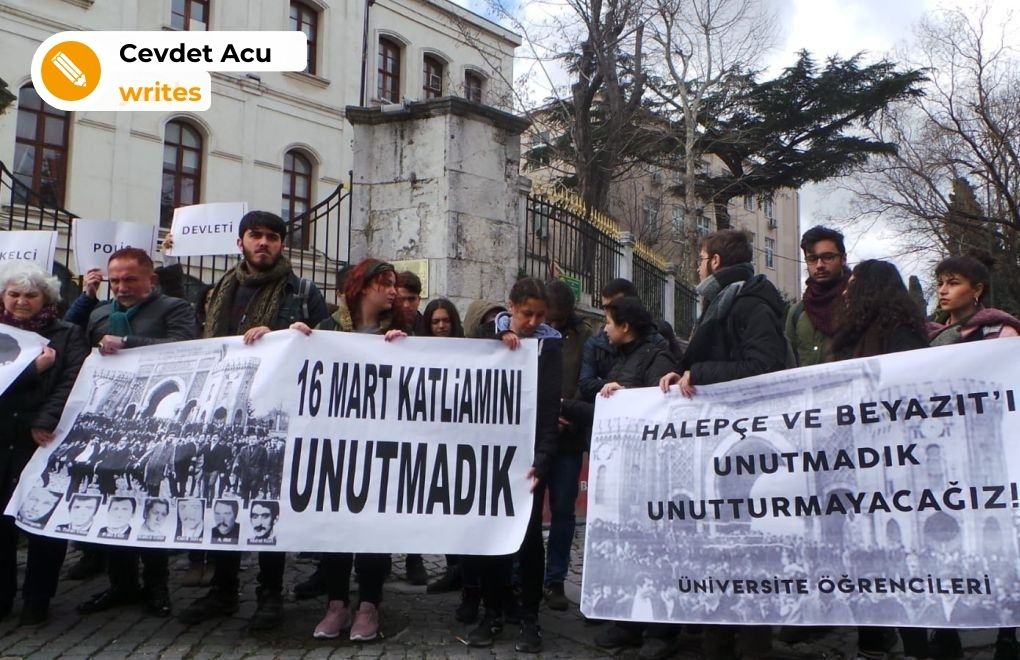* Photos: Cevdet Acu
Click to read the article in Turkish
Based on the World Health Organization (WHO) data, there are almost ten million novel coronavirus (COVID-19) cases across the world as of June 2020. Furthermore, the number of COVID-19 cases is going to increase day by day, covering almost every part of the world. Due to this new deadly pandemic, many people have been negatively impacted.
I caught off the negative effect of COVID-19 crisis in a place where I had never been in my life. I was aware of the crisis that started in Wuhan, China in December 2019, but I was not expecting it to be this much of a trouble.
I wrote this piece on a day when the rain was pouring down in torrents, which I had never seen before in Amman, the capital city of Jordan. It seemed like the rain was trying to wipe out the virus alongside the earth as no one had found a cure for this new virus yet.
Yes, I came to Jordan around four months ago to do interviews with Syrian refugees as part of my PhD research; and my original plan was to stay only around two weeks. I had also arranged everything including my clothes based on the two-weeks-stay, but COVID-19 crisis changed everything.
When I came to Jordan, the sun that warmed not only your body but also your soul was not seen anywhere because it was giving life for people in other parts of the world. The sun was giving people a hope with its glitter; because the sun meant bright and bright meant hope.
As time passed, the sun began to illuminate the ground and the sky every morning in Amman as I was in the best time of the year, somewhere in the middle of spring and summer. Everything was beautiful at the right time and the right place. But what about this deadly COVID-19 crisis?
Whenever I thought about this deadly pandemic and its consequences; I remembered a quote which belongs to a poet, named Ahmet Telli: "We were at the wrong place, or we were lonely". In short; it was not the perfect time and the place of this crisis. However, life is full of surprises. There are sometimes good and sometimes bad surprises, as this coronavirus crisis.

Honestly, I did not pay enough attention to the COVID-19 issue at the very beginning of the crisis. I naively even thought that people were exaggerating it a little bit. I and people in my generation have never experienced this much of a big crisis which affects almost all people across the world.
Yes, I may have seen similar images in the science fiction movies, or a movie called "Love in the Time of Cholera (2007)" in a romantic way, but I have not experienced this much of a big crisis in the real life. Despite my young age, I have witnessed some major social and political crises, but none of these crises occurred at the same time and almost everywhere in the world, as it is now. Hence, I was somewhat sceptical about this new virus and its side effect in the early days of the COVID-19 crisis.
However, as time passed, the rapidly increasing mortality rates and the drastic measures taken to prevent the spread of the virus had put me in a dilemma. During these times, whenever I walked on the streets in Amman; I could not believe the scenes that I saw.
Due to COVID-19 crisis/fear, there were long queues in front of each supermarket and bakery; it was even possible to observe some conflicts/fights among people who were waiting in the queues in Amman.
Hence, whenever I went out at this time in Amman, I felt myself in the dilemma of the Chinese wise Chuang Tzu. One of his famous quotes reads: "I dreamed I was a butterfly, flying in the sky; then I awoke. Now I wonder, am I a man who dreamt of being a butterfly, or am I a butterfly dreaming that I am a man?" As in this dilemma, I was not the person I used to be anymore due to the COVID-19 crisis and the scenes I witnessed in Amman.
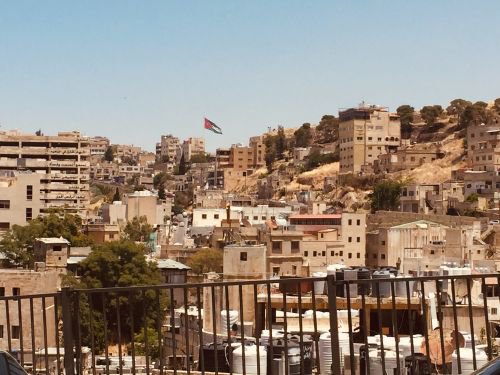
It was too late for me to leave Jordan as the Jordanian government had already closed all airports with a quick decision to prevent the spread of COVID-19. An order came from King Abdullah II ibn Al Hussein, the top official of the country, and this order was saying that no one was allowed to leave his/her house for four days and four nights due to COVID-19 crisis. [1]
The day before the national curfew on March 20 in Jordan, I was constantly seeing women and men of all ages on the streets, and each of them was walking softly with fear and anxiety. Following the King's decision, on March 21, the start of the curfew was signalled at seven a.m. by air-raid sirens that sounded across the country even in the endless deserts in Jordan.
I am not sure when was the last time the ancient city Petra, 200 km far from Amman, witnessed air-raid sirens to warn its inhabitants due to this type of crisis. Petra has witnessed the darkest periods of history, and it has been standing still for thousands of years, and some researcher indicates this ancient place is the lost holy city of Islam. Furthermore, it is known that Petra is a sacred city of love that has hosted dozens of different communities so far. It is now facing a new challenge which is COVID-19 crisis.
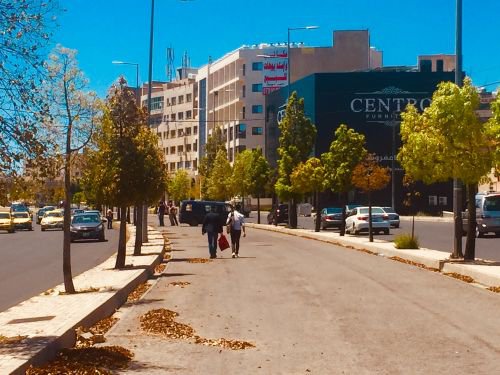
Jordan is one of few countries that have implemented the harshest COVID-19 restrictions to prevent the spread of the virus in the world.
King Abdullah approved a National Defence Law, which gives the Jordanian government absolute power to do whatever is required to combat against this COVID-19 crisis. This is a state of emergency law allows current Prime Minister Omar al-Razzaz to impose curfews, close businesses and place restrictions on freedom of movement of the people.
Hence, due to this national curfew, Amman suddenly became a ghost city where there were no noise or people around. Based on the United Nations agencies' data, there are millions of Palestinian and Syrian immigrants in Jordan as of June 2020, but right now not even a migratory bird is allowed to enter or leave the country due to COVID-19 restrictions. Everything would remain in place, and no one would step out of her/his home unless s/he received special permission from the relevant ministry.
Everything was happening out of my will in a way I have never planned. As a result, my voluntary migration to Jordan turned into something else. I am not able to leave the country even if I want.
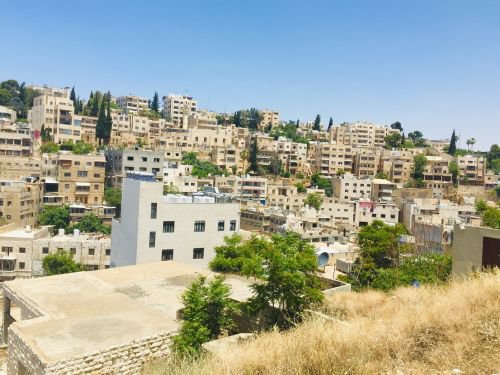
Wadi Rum, one of the most fascinating deserts in the world where millions of people have gone there to watch shining stars at night, expresses its objection with its sandstorms, as it is being left alone due to COVID-19 measures. [2] Wadi Rum is known also as the Valley of the Moon because of its spectacular moon-like landscape. Wadi Rum was sending its tears in its own language, dust storm, as a way of objection in, I could see the dust in the sky in Amman from time to time.
What could I do when all these things were happening? Nothing! I do not have a choice apart from waiting patiently. I have to view a glass as half-full to consider more optimistically until everything gets back to normal as it used to be. I believe that being happy is also related to the way we interpret life, so it is always good to stay positive.
Because of all these unexpected developments due to COVID-19 restrictions, I have had to change my lifestyle and habits that I have lived up until now to adapt to this "new life". During midnight, I go to the terrace of the house where I live almost once every two days, and I share my loneliness with the stars shining in the sky.
Sometimes, the full moon which illuminates almost the entire city during the night also accompanied our conversation. I explain to them all of my secrets which I could not tell anyone, and they tell me that they are more comfortable, and they can utterly breathe as nature is cleaner than six months ago thanks to COVID-19.
Then, I understood that this COVID-19 is a huge crisis for people while it is a good chance for nature. Who knows, perhaps this COVID-19 crisis is revenge of nature as we, people, destroy the ecosystem more day by day unfortunately.
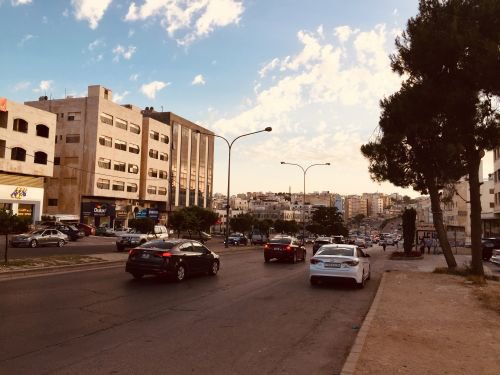
Finally, I would like to end my article with a piece of small advice while I am looking forward to the glitters of light that will emerge right after the darkest point in Amman, which is now one of the oldest settlements in the world.
In the words of very famous director and writer Andrey Tarkovsky: "Above all, I feel that the sounds of this world are so beautiful in themselves that if only we could listen to them properly."
During this deadly pandemic crisis, let's listen to each other and nature more carefully to feel the sounds of this world to make life better for all. Stay healthy, safe, and with solidarity.
A book recommendation: "Love in the Time of Cholera" published in 1985, by one of my favourite authors Gabriel Garcia Marquez.He claimed that the story was inspired by his own parents' marriage, or his memory of it. It is not only about a love story; it is also related to time and death. Yes, there is also a movie which I mentioned above. If you have not watched the movie yet, I would suggest you start with the book.
Note: I would like to express my gratitude to my lovely friend, Gonca, for her time to edit.
[1] Jordan, officially the Hashemite Kingdom of Jordan, is an Arab country. It is a constitutional monarchy based on the constitution promulgated on January 8, 1952. The king exercises his power through the government he appoints. King Abdullah II of Jordan has been sovereign since the death of his father in 1999.
[2] Wadi Rum is a World Heritage valley (Wadi means valley and Rum high) located in South Jordan.
About Cevdet AcuCevdet Acu is a PhD candidate in Economics at University of Exeter. His focus is on the macroeconomic influence of displaced people on receiving countries. His research is concerned with the question of how Syrian refugees impact the labour market in host countries, particularly in Jordan and Lebanon. |
(CA/PT/SD)




.jpg)
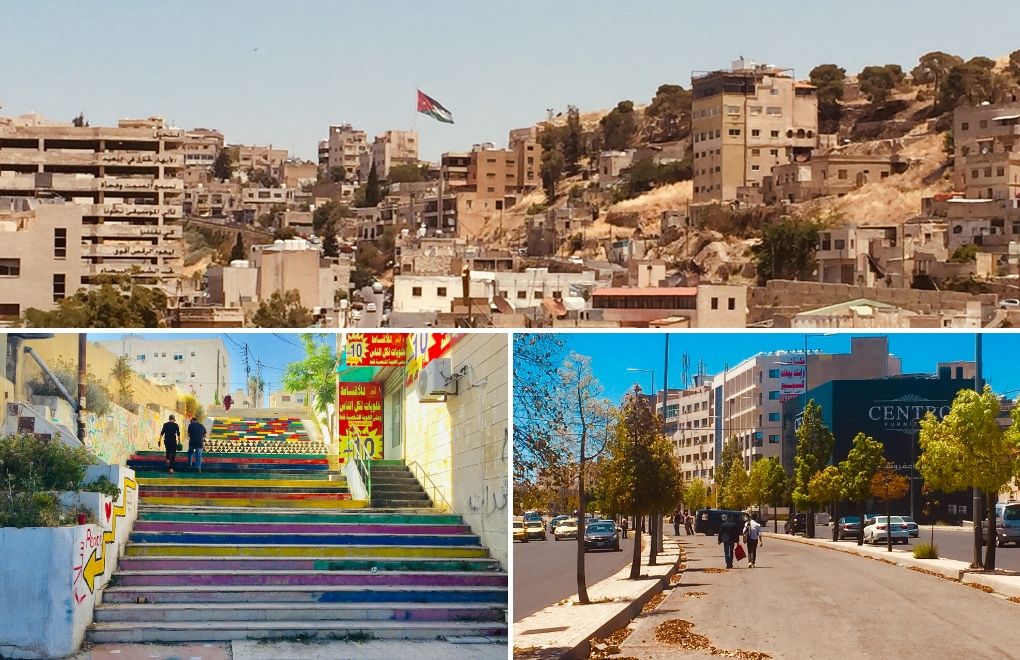
.jpg)
.jpg)

